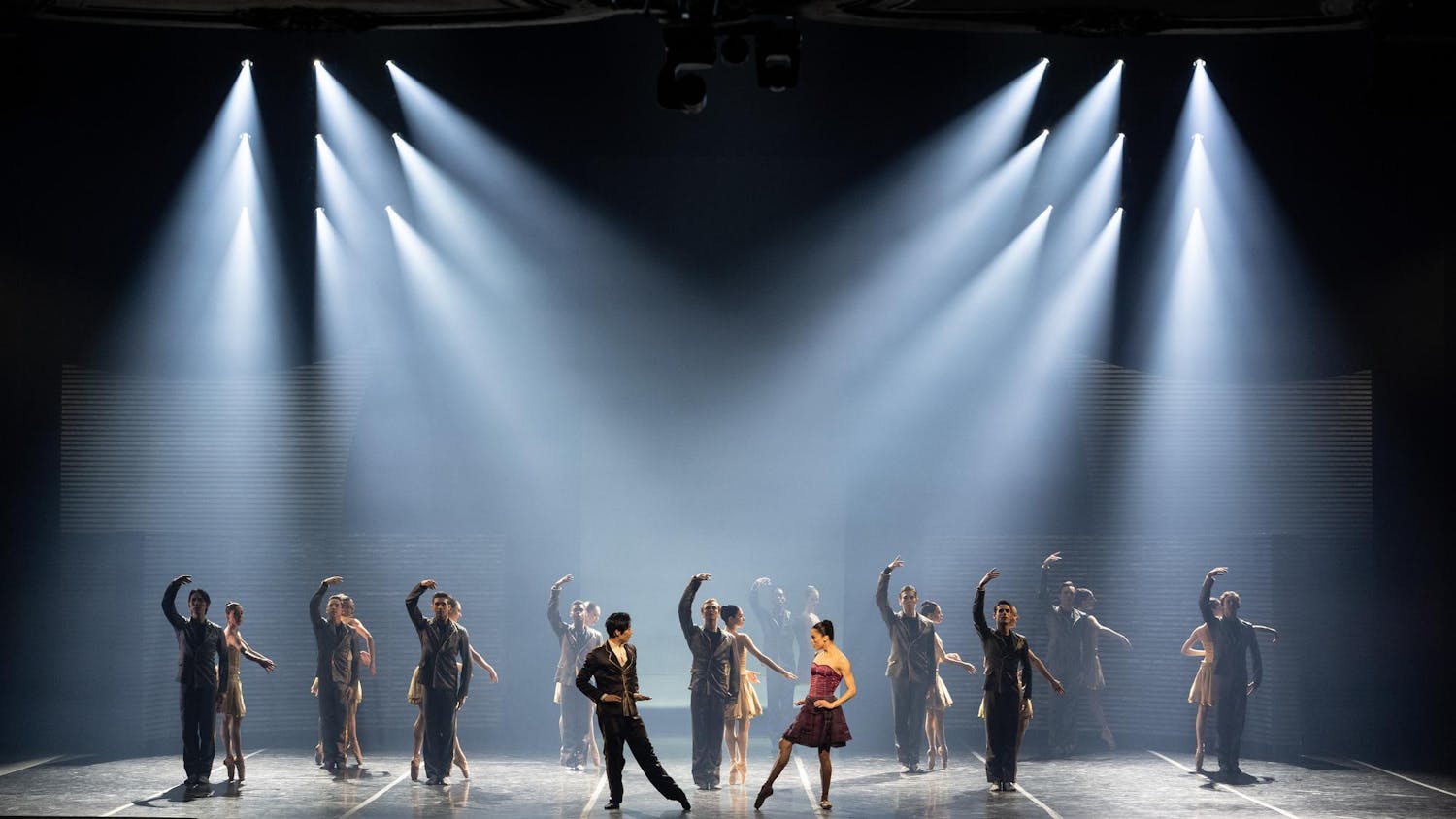The first line of "Adding Machine: A Musical" asserts, "In numbers, all truth can be revealed." While the play does more to alter the audience's perception of how the world works than to actually answer any questions of truth, SpeakEasy Stage Company's production of this contemporary musical offers an exploration of expressionist drama as well as a reevaluation of the American dream.
"Adding Machine" is the Boston premiere of the 2007 musical adaptation by Joshua Schmidt and Jason Loewith of the 1923 play of the same name by Elmer Rice. The musical tells the story of Mr. Zero, an everyman accountant whose name denotes his bottom-shelf position in life. After 25 years of working for the man, his boss informs him that he will be replaced by a mechanical adding machine.
As if Zero's life at work is not depressing enough, his marriage to Mrs. Zero is not exactly desirable; she depressingly demands a kiss on the cheek in each scene as she sings to her husband about the thrills of the romantic movies and about the lives of other couples whose names are always, appropriately, higher integers.
In response to being fired, Mr. Zero makes the bold move of murdering his boss, which promptly lands him in jail. The musical follows him on his journey to the "Elysian Fields," Rice's imagined version of heaven for only the best of the good. Why Zero ends up there remains intentionally ambiguous but still troubling.
"Adding Machine" ends with final thoughts on the meaning of life and human experience that is typical of expressionist drama, especially when the musical considers Mr. Zero's spiritual state after murdering his boss. The story is not exactly complicated, but Rice's artistic roots rely more heavily on a character's mood and emotions than a complicated plot.
Considered to be one of the first American expressionist plays, Rice's original play provides a clear inspiration for the musical and dramatic styles that Schmidt and Loewith incorporate. Its titular categorization as a musical is deceptive, as its musical demands could certainly be tackled by a chamber opera company. The score sounds incoherent at first but reflects the varied theatrical styles that Rice employs in his play.
Schmidt's styles run the gamut, from classical musical theater and 20th century classical to gospel and spoken chorus with a rhythmically-challenging, but well-executed recitation of the various receipt values. The dissonant score wonderfully enhances the scenes in the musical, in which characters talk more often at each other than to each other. "Adding Machine," in true expressionist form, allows all of the characters' feelings to be further put on display for the audience via the artistic mode of song.
Brendan McNab plays the down-andout Zero and provides a dramatically strong and vocally on par performance. He portrays a mostly unlikable character and does so with enough gusto to keep audience members in their seats. But he also successfully rounds out the character with just enough empathetic qualities to make the audience actually sympathize with him when they see him with another woman in heaven, the tautologically wrong choice that is absolutely believable and right within the world of the play.
Amelia Broome portrays Mrs. Zero, whose obsession with early motion picture romances highlights the lack of any romance in her own drab domestic sphere. Her portrayal was strong, too, but lacked the grit and ferocity of a Mrs. Zero who would make her husband's life that much more miserable and believable.
Rounding out the cast are Liz Hayes as Zero's mousy secretary (whose own toils in life lead her to meet and awkwardly waltz with Zero in heaven); John Bambery as Shrdlu, another murderer who joins Zero in heaven and is extremely well cast in this role that requires the green actor to belt gospel tunes; and a strong ensemble of veteran Boston musical theater actors.
The production's design team turned the intimate Roberts Studio space into a spacious industrial warehouse, most notably with Susan Zeeman Rogers's set design. A large trough in the middle of the stage serves as Zero's office, a courtroom and a conveyor belt.
Ironically, in a play that straddles the real and supernatural worlds, this rift was not used to its full effect. While clear, the portrayal of heaven via two awkwardly draped white sheets was not the most adventurous choice in an otherwise ambitious piece.
"Adding Machine" certainly poses many questions about the human experience and the American dream in ways that remain relevant today, although they may be better suited for a slightly rethought Mr. Zero as Mr. Billions in a fall from grace (Bernie Madoff, anyone?). SpeakEasy's production steps up to the plate but does not have enough momentum or grounding to hit it out of the park. The show is certainly worth a trip for someone willing to take a risk and explore a challenging theatrical genre.





